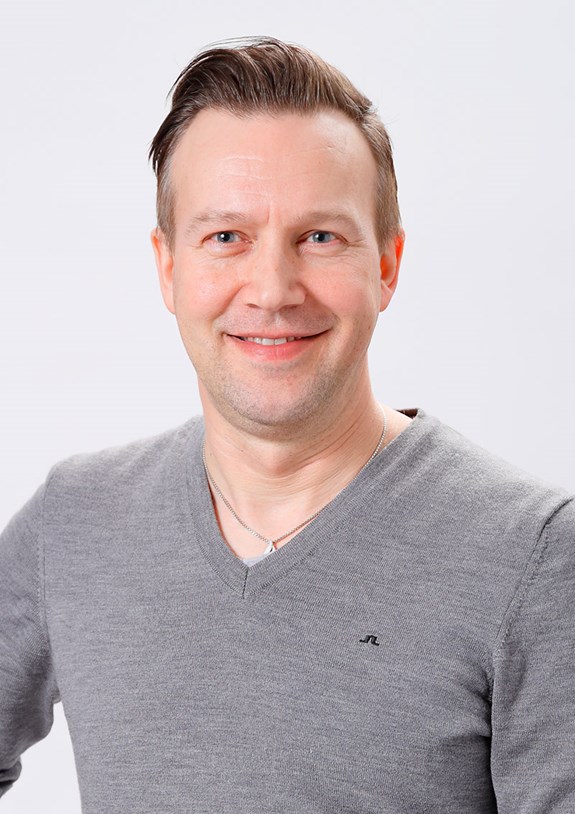Docent Jukka Kallijärvi takes the lead of our research group studying GRACILE syndrome and other neonatal mitochondrial diseases. The research group explores the pathophysiological mechanisms of childhood-onset mitochondrial diseases and aims to help develop novel treatments for the benefit of the patients.
Docent Jukka Kallijärvi, PhD, completed his bachelor and master’s studies at the University of Oulu and the University of Helsinki. He wrote his PhD in the field of medical genetics at the Folkhälsan Research Center (FHRC) and Department of Medical Genetics of the University of Helsinki. Following postdoctoral positions at the Institute of Biotechnology studying insulin signaling and fruit fly developmental neurobiology, Dr. Kallijärvi joined prof. Vineta Fellman’s group at FHRC and at the University of Lund, Sweden, in 2012 to work on neonatal mitochondrial diseases.
Dr. Kallijärvi begun his work as a full group leader at FHRC in January 2022. He is also affiliated to the Stem Cells and Metabolism Research Program in the Faculty of Medicine at the University of Helsinki.
– I’m happy to be able to continue our exciting and productive translational research. FHRC has an impressive legacy in rare disease research and I’m proud to be part of that as a new group leader, says Kallijärvi.

I love almost everything about my work, but the daily interaction and brainstorming and problem solving with my PhD students and postdocs is absolutely the best part.
The main interest of the Kallijärvi group is utilizing methods of molecular genetics, biochemistry, physiology and histology to understand the pathogenesis of mitochondrial complex III deficiencies, which are inherited metabolic diseases of mainly newborn children. Before taking the lead at the turn of the year, Kallijärvi worked as a co-PI with prof. Fellman for several years.
– I love almost everything about my work, but the daily interaction and brainstorming and problem solving with my PhD students and postdocs is absolutely the best part, says Kallijärvi.
Historically, the focus of the research has been GRACILE syndrome, a member of the so-called Finnish disease heritage. The disease is caused by one specific mutation in the mitochondrial assembly factor BCS1L, but other BCS1L mutations are the most common cause of respiratory chain complex III deficiencies also outside Finland. The research group uses mouse, cell culture and fruit fly models to study disease mechanisms and test potential therapies. Additionally, the group works on another pediatric mitochondrial disease, LCHAD deficiency in which the oxidation of fatty acids does not work properly. The group also has interest in the role of mitochondria in normal energy metabolism, tissue growth and aging.
– We have an amazing new finding that we are just putting together as a manuscript, as well as other exciting projects ongoing, so stay tuned, Kallijärvi concludes.
You can read more of how mitochondrial complex-III works here, and more about the groups research here.
